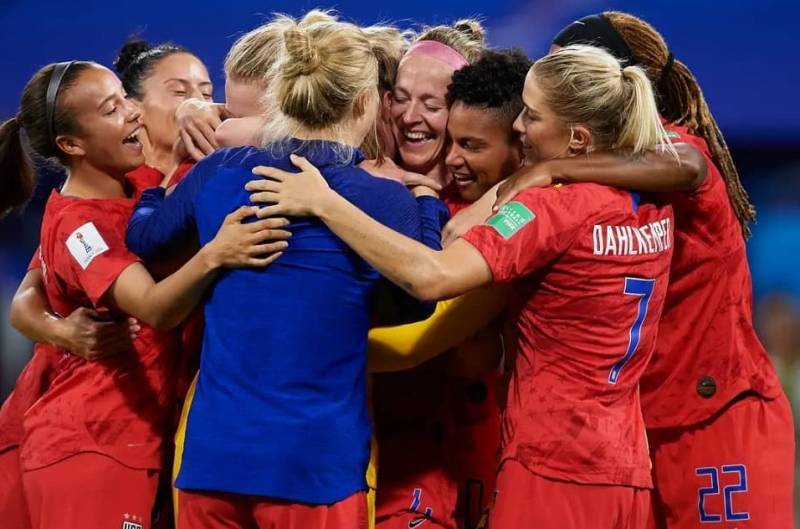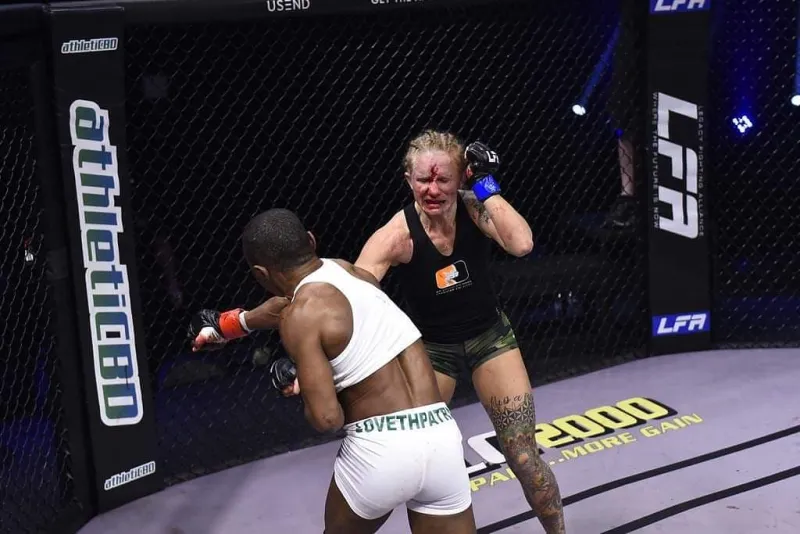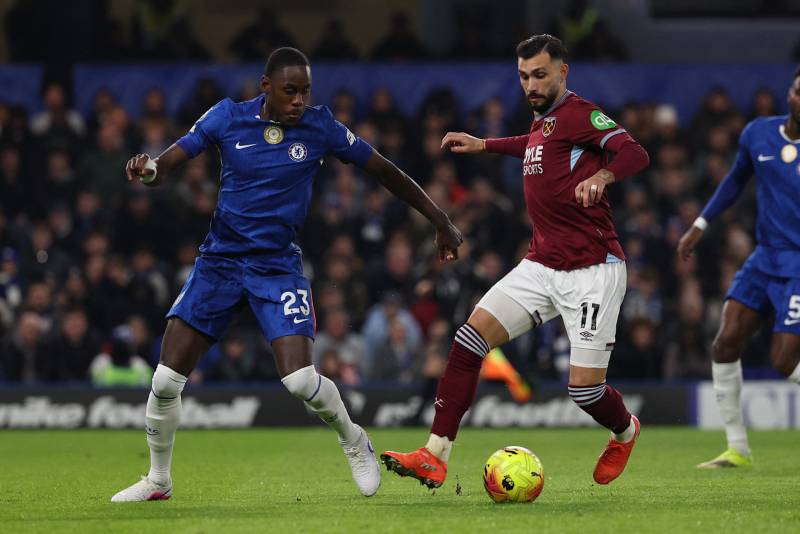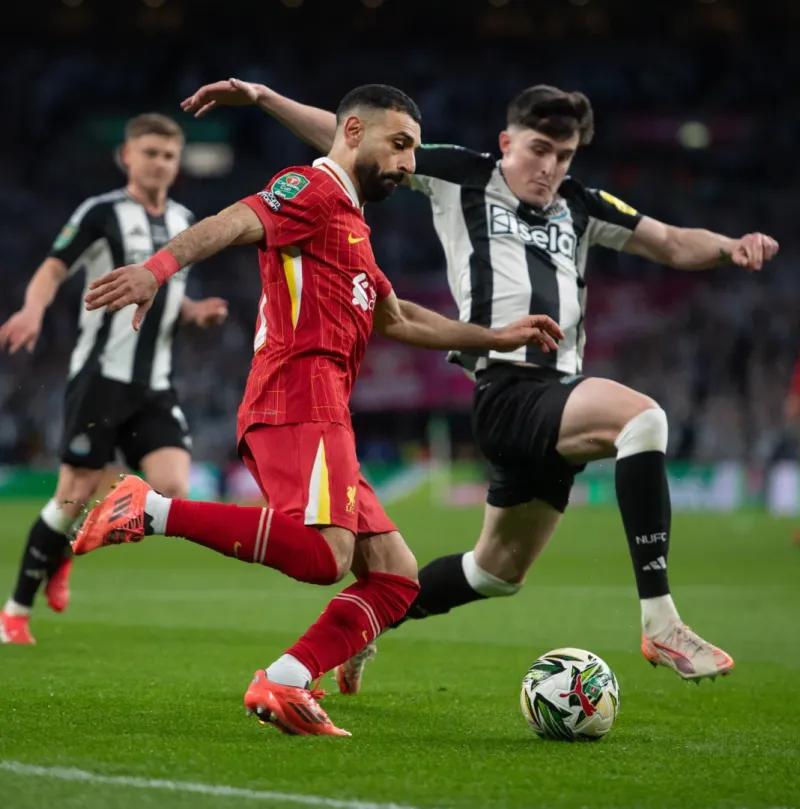Coming some three months after the US Women's National Team (USWNT) settled its gender discrimination lawsuit against the US Soccer Federation to the tune of $24 million, the organizing body announced Wednesday a groundbreaking collective bargaining agreement (CBA) that is significant for reasons both symbolic and economic, creating an innovative answer as to what equal pay in sport -- and perhaps anywhere and everywhere else -- can actually look like.
Amy Bass
Amy Bass
Back in March 2019, when 28 USWNT players endorsed the discrimination lawsuit filed under the Equal Pay Act and Title VII of the Civil Rights Act, naming disparities in pay as well as in working conditions, they were four months away from their next World Cup crown. In the opening rounds that summer, they destroyed -- to baseless criticism -- Thailand 13-0, the largest margin of victory in the tournament's history. In the final, they took down the Netherlands 2-0, a team that had recently employed an equal pay scale to create pay equity between the men's and women's sides within the next year. Indeed, parity was front and center during the trophy ceremony, in which American fans chanted "equal pay" in front of a global audience of some 1.12 billion.
But then everything, including sport, came to a screeching halt.
"Pay equity slowed during the pandemic, and combined with attacks on women's rights, it has felt bleak," Brenda Elsey, professor of history at Hofstra University and co-host of the feminist sport podcast "Burn It All Down," told me.
With the announcement of this new agreement, soccer is no longer at a standstill but is poised to lead the way on how to combat the consequences of the longstanding lack of investment in all women's sports. Soccer is forging a context for equity that moves beyond which US soccer jersey sells the most (and that answer might be surprising... but shouldn't be).
Indeed, the arrangement presents an almost immediate dividend for US soccer players, as the men's side has already qualified for the Men's World Cup in November in Qatar (after failing to do so in 2018). Their qualification is critical in understanding how the new CBA pans out, as, in addition to equal pay for participation on the international pitch, the deal includes an unprecedented stipulation regarding shared cash from FIFA for playing in the World Cup. The weight of this clause cannot be understated, as historically the championship women's squads have received less from FIFA than a men's team that finishes at the bottom.
That last bit is kind of imperative, so let's say it one more time: Until this deal, the women made less winning it all than the men made if they lost. In 2019, the women's purse pooled at $30 million, with the prize money in 2023 set to be $60 million. Next November, the men are looking at least $400 million.
soccer settlement is a landmark win for fairness
Women's soccer settlement is a landmark win for fairness
"No other country has ever done this," said US Soccer President Cindy Parlow Cone about the radical World Cup provision. "It really, truly is historic."
But perhaps just as important as the actual deal -- what the players stand to pocket with the new contract terms -- is the perception of the various actors -- the federation, the players associations, the players themselves -- coming to the table together and figuring this out. The persistence of members of the women's team, who have engaged in years of litigation alongside their fans chanting "equal pay," as well as years of injustices both on the pitch and off, including playing on injury-risking artificial turf and the venom of a sitting US President, now serves as a model of the kind of fight that has to be waged to make sure an end result is the right and just result in the workplace and beyond.
"It's wonderful to see the sports industry modeling what others should be striving for, equal pay. I think the women athletes used their platform, with little allyship from their male counterparts, to achieve this," Elsey said to me. "This victory will have important implications throughout global soccer because of the importance of the US Women's team and National Women's Soccer League (NWSL) internationally."
While the women who have spent the last six years fighting for this are, without question, victors here -- something they are more than used to being -- the ultimate winner, really, is the game of soccer. With men and women sharing broadcast and sponsorship revenue, they are now partners, working together to elevate the game to the next level in the United States, and creating an enormous and seemingly instant culture shift within the sport, a rare space in which men and women, operating as equals (at least on paper), can reap the rewards of one another's triumphs.
This happened in a moment when US basketball star Brittney Griner remains held (and according to the US State Department, wrongfully detained) in Russia for allegedly carrying narcotic substances in her luggage. Griner plays in Russia because her US paycheck pales in comparison to the star salary she earns there. One can only hope that this new soccer agreement creates enough pressure for other elite sports organizations to get their equity ducks in a row to address pay gaps that have left athletes like Griner vulnerable. We must set aside the idea that women should be paid only if and when their play is valued -- commercially and culturally -- as much as the men.
Get our free weekly newsletter
Sign up for CNN Opinion's newsletter.
"The critics who fantasize about markets determining pay," Elsey agreed, "just don't understand or are unwilling to recognize the level of public investment that men's sports have received."
Undeniably, the chronic lack of investment in women's sports, which Title IX started to fix almost 50 years ago at the high school and intercollegiate levels, has produced professional leagues that lack the decades-long benefits that have helped build men's leagues, such as the NBA and the NFL, to be and remain both profitable and secure. The moral here? Women's sports are the vastly untapped future -- supporting it isn't just the right thing to do, it is the savvy thing to do. Invest in women's sports to get results, but don't wait for those results -- or a team who now owns half of all World Cup titles -- to empower women's sports. Do it now.




